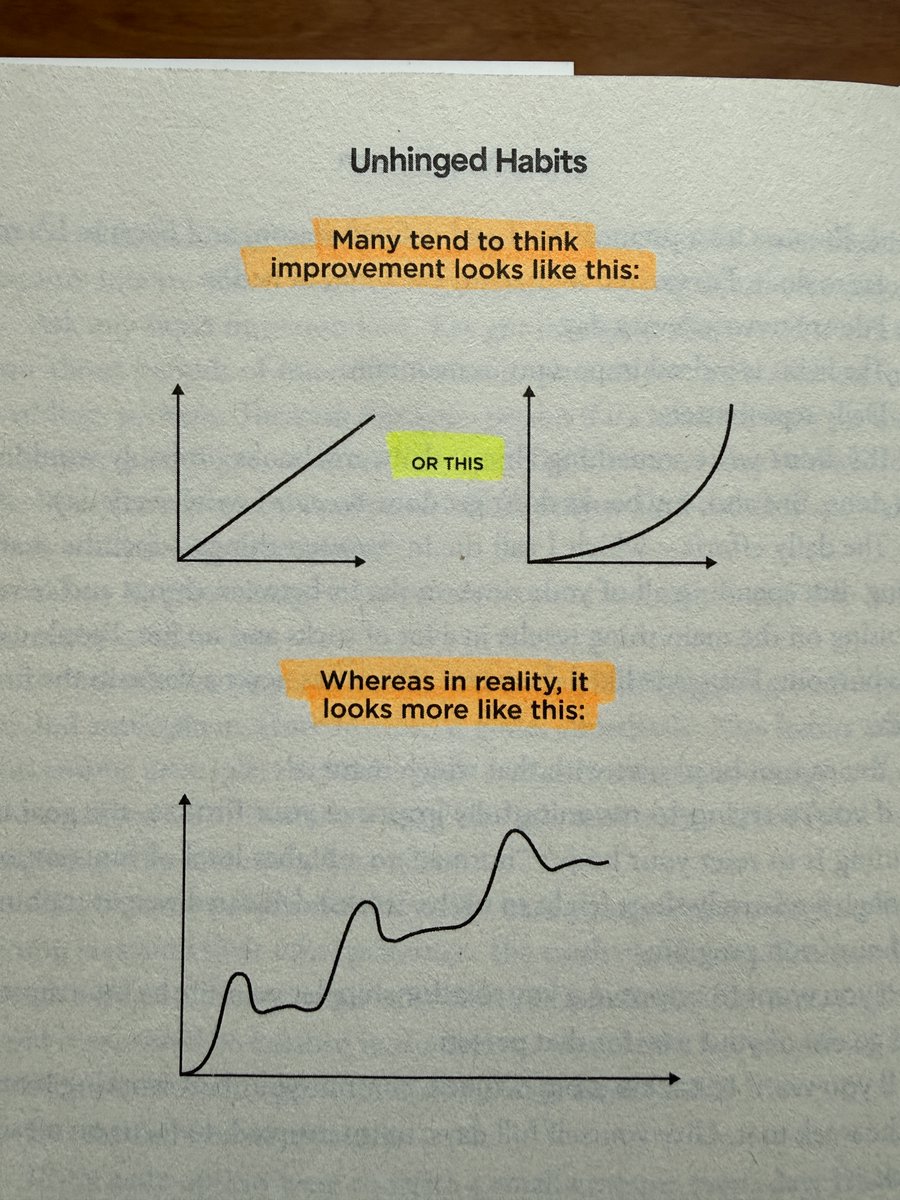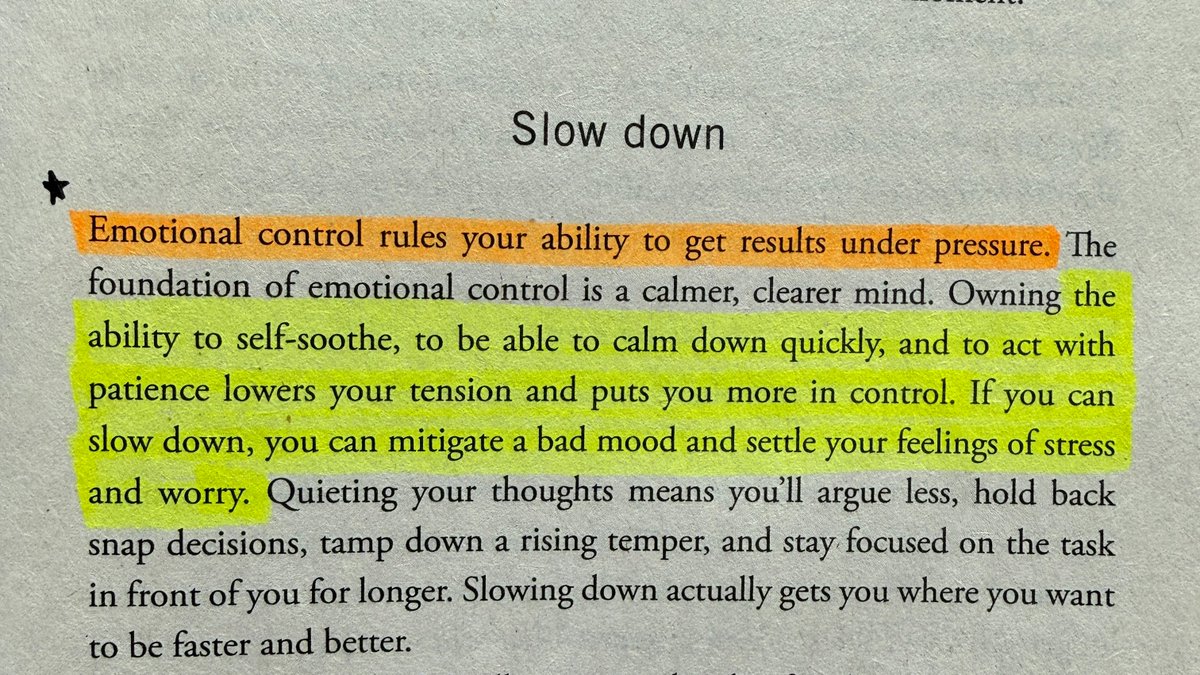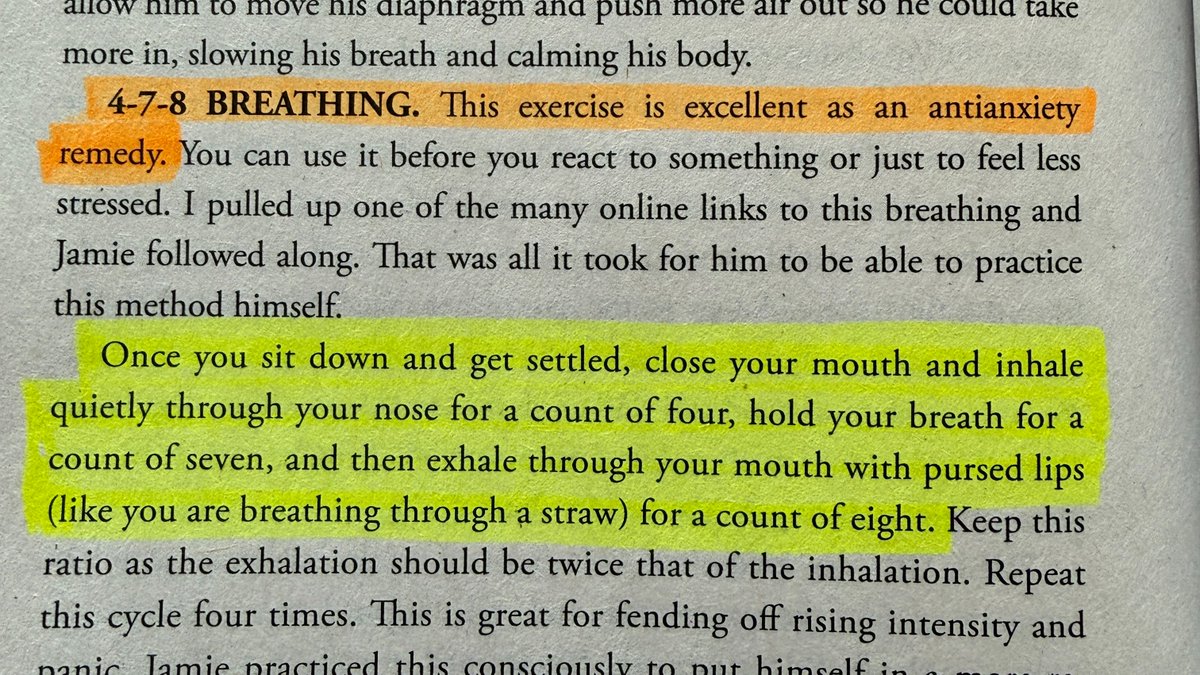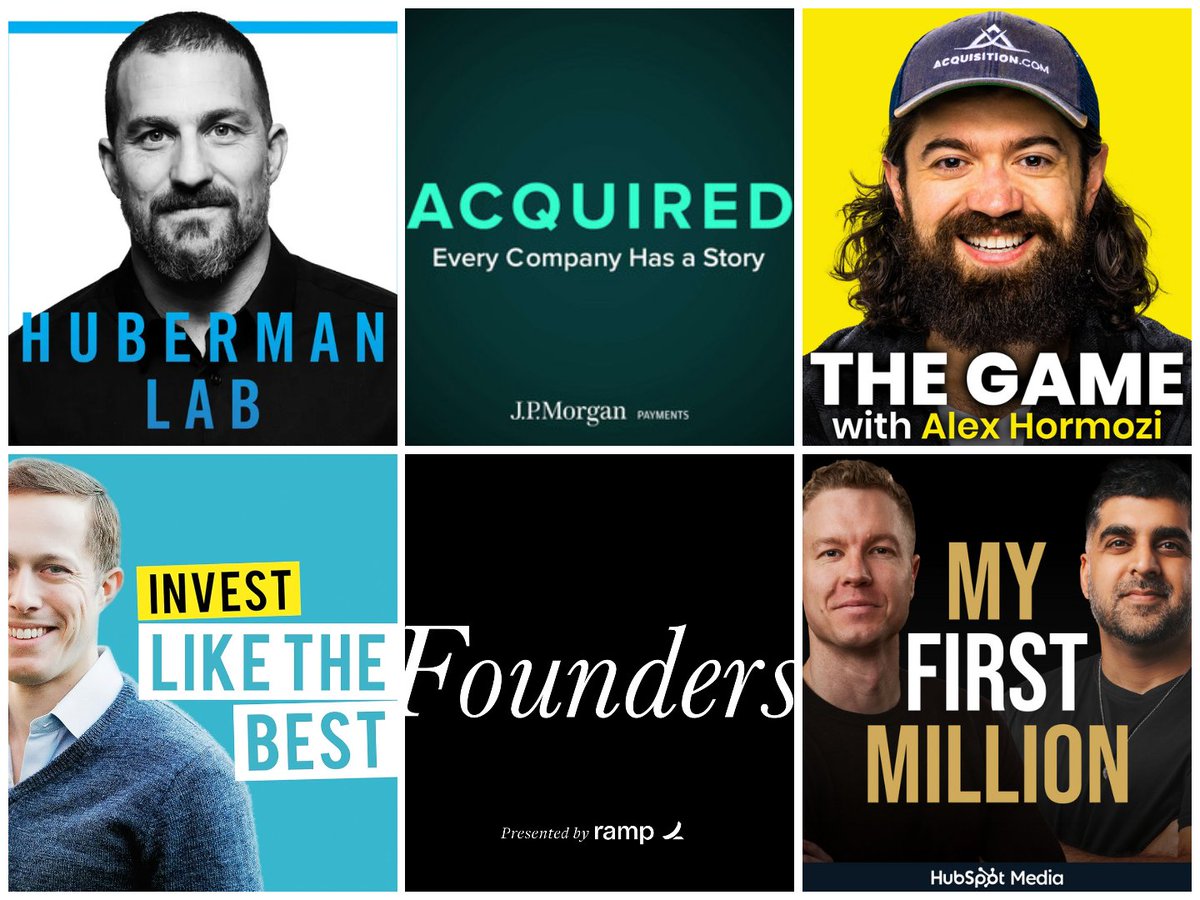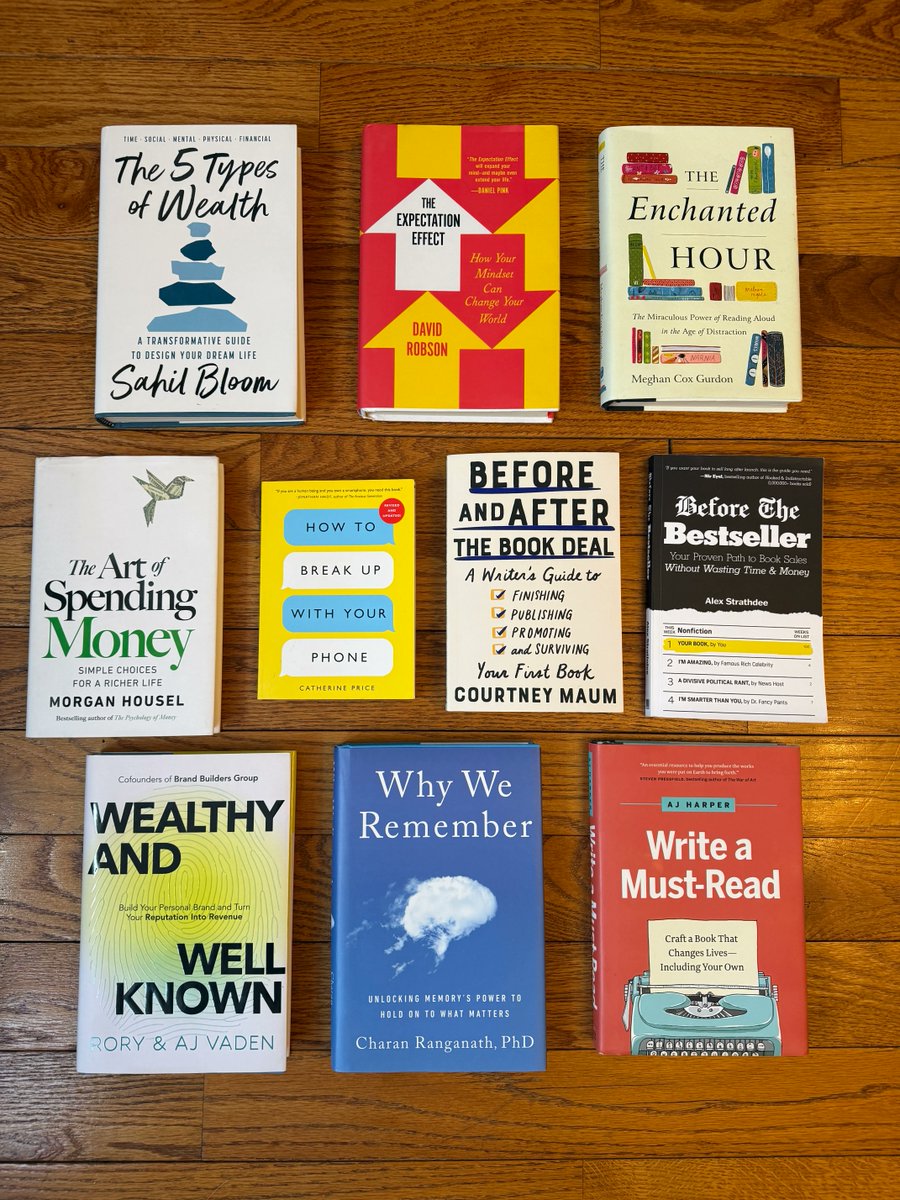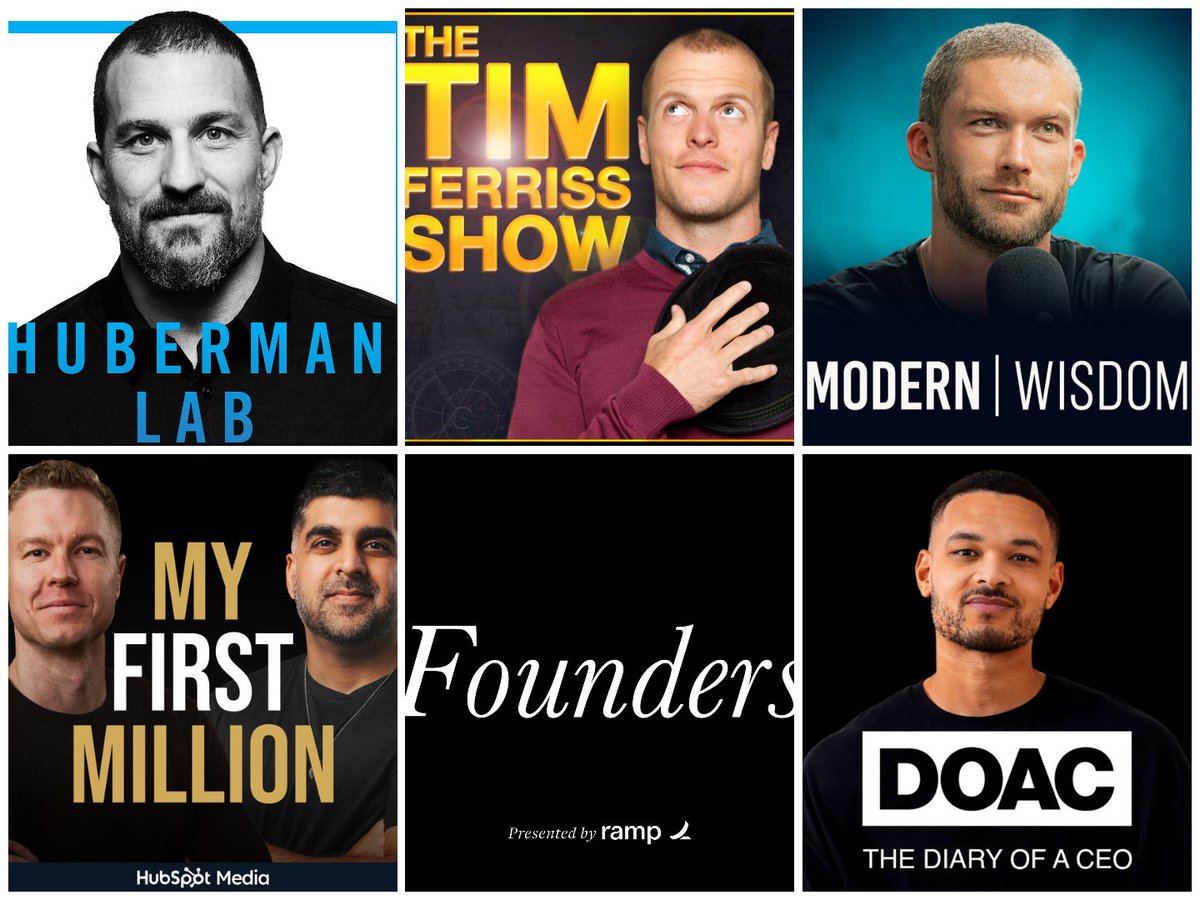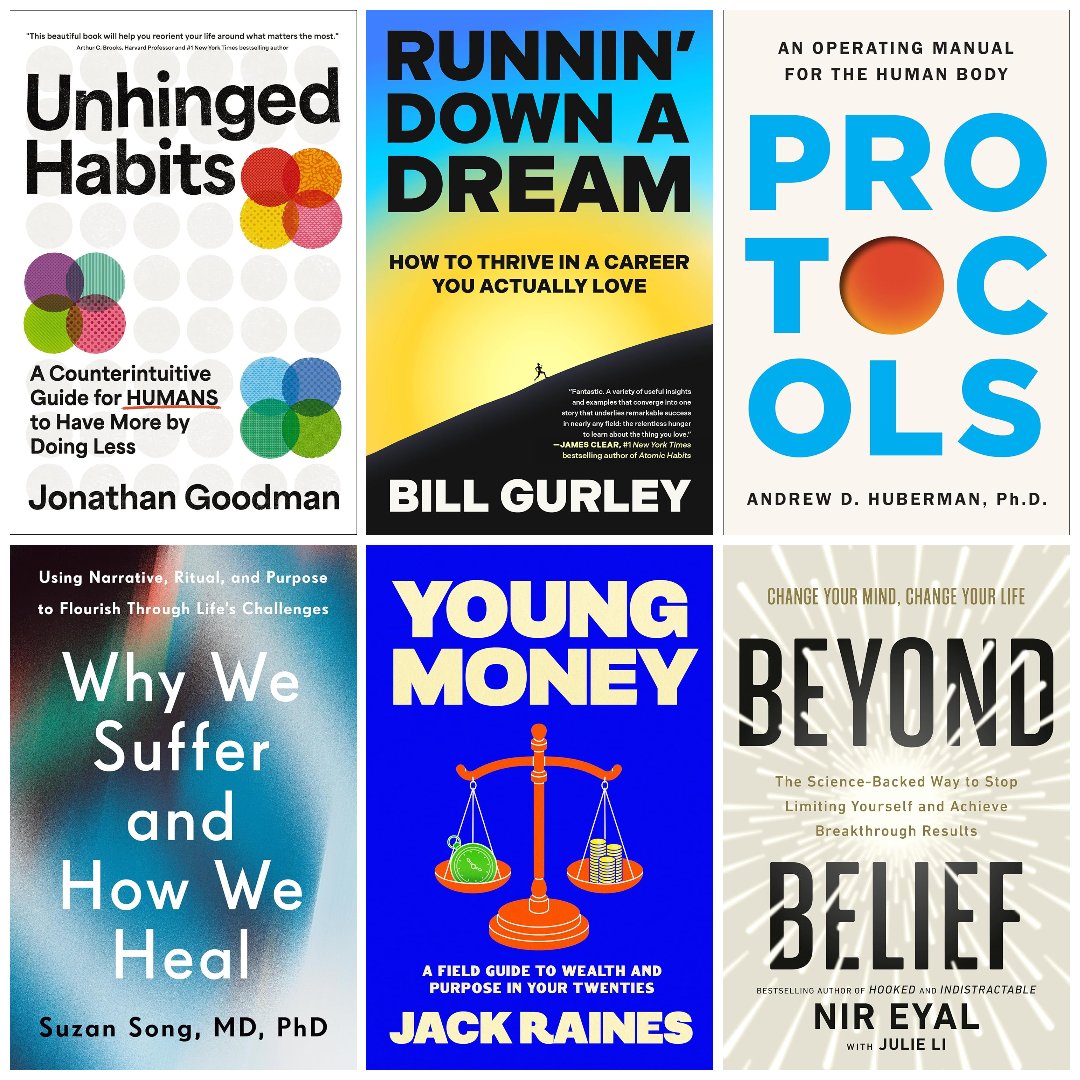This is @robkhenderson.
He has a PhD from Cambridge, wrote the bestselling book "Troubled", and reads 50-100+ books a year.
Here are 17 helpful reading tips from him:
1) Reading takes time. You have to make it a non-negotiable part of the day.
2) For example, each day you could schedule a time to sit down and read at least ten pages. If that’s too much, try five. If that’s too much, then start with one page.
3) In my case, I wake up in the morning and read as I drink coffee. This is how I start the day. I tell myself I’ll read at least 25 pages (it used to be 15 in grad school). Typically, though, once I get started, I’ll read more.
4) This precious time must be guarded! Some thinkers, as they rise in prominence as a result of their interesting ideas, gradually devote less time to reading and more time to lucrative opportunities. This is a mistake. They are neglecting one of the core habits that made them so interesting in the first place.
5) I keep books on my Kindle app. When I have a spare minute throughout the day, I read.
6) Don’t install games on your phone. If you can’t resist the pull of social media, don’t put those apps on your phone.
7) I read multiple books concurrently. Typically 2 or 3 physical books I cycle through, with one I devote most of my attention to.
8) I also have 2 other books I read on the Kindle app on my phone. Waiting in line at the store. In between sets at the gym. Traveling on the train or an uber. All this time adds up. You can spend 5 or 10 minutes scrolling, or read a couple of pages of a good book.
9) Listening to audiobooks is easier. And it’s better than nothing. But if you want to seriously engage with ideas and increase the likelihood that you’ll retain knowledge, it’s better to read.
10) Before bed, I charge my phone on the other side of the room. And I’ll read (usually a biography or memoir) until my eyes get tired and I go to sleep. Sometimes this period of reading gets me through 2 pages, sometimes 20 or more.
11) For me, books are similar to food. A necessity. Even when I was broke, I still bought books and still read a lot.
12) Nowadays, if I see a book that interests me, I always just buy it. The upside of interesting and useful new information vastly outweighs the downside of being out $20 or $30 dollars.
13) Sometimes I buy books and they turn out to be uninteresting or fail to hold my attention. I place it in a pile. Every couple of months, once the stack reaches around 6-10 books, I’ll then donate them to a local used book seller. He allows me to trade them for 1 or 2 used books from the store.
14) If I couldn’t afford books, I’d spend much more time at the library. I’d download them from libgen. I’d physically steal them if I had to.
15) I don’t finish every book I start. I skim. I’ll read a chunk of a book, place it on my shelf, and then pick it up two years later and continue.
16) Most of what you read won’t be especially interesting or insightful. You have to crush a lot of rock to get to the gems.
17) Deep learning demands effort. If you want to possess a large mental universe of knowledge from which to draw, you have to consume a lot of information. This requires focused reading.
He has a PhD from Cambridge, wrote the bestselling book "Troubled", and reads 50-100+ books a year.
Here are 17 helpful reading tips from him:
1) Reading takes time. You have to make it a non-negotiable part of the day.
2) For example, each day you could schedule a time to sit down and read at least ten pages. If that’s too much, try five. If that’s too much, then start with one page.
3) In my case, I wake up in the morning and read as I drink coffee. This is how I start the day. I tell myself I’ll read at least 25 pages (it used to be 15 in grad school). Typically, though, once I get started, I’ll read more.
4) This precious time must be guarded! Some thinkers, as they rise in prominence as a result of their interesting ideas, gradually devote less time to reading and more time to lucrative opportunities. This is a mistake. They are neglecting one of the core habits that made them so interesting in the first place.
5) I keep books on my Kindle app. When I have a spare minute throughout the day, I read.
6) Don’t install games on your phone. If you can’t resist the pull of social media, don’t put those apps on your phone.
7) I read multiple books concurrently. Typically 2 or 3 physical books I cycle through, with one I devote most of my attention to.
8) I also have 2 other books I read on the Kindle app on my phone. Waiting in line at the store. In between sets at the gym. Traveling on the train or an uber. All this time adds up. You can spend 5 or 10 minutes scrolling, or read a couple of pages of a good book.
9) Listening to audiobooks is easier. And it’s better than nothing. But if you want to seriously engage with ideas and increase the likelihood that you’ll retain knowledge, it’s better to read.
10) Before bed, I charge my phone on the other side of the room. And I’ll read (usually a biography or memoir) until my eyes get tired and I go to sleep. Sometimes this period of reading gets me through 2 pages, sometimes 20 or more.
11) For me, books are similar to food. A necessity. Even when I was broke, I still bought books and still read a lot.
12) Nowadays, if I see a book that interests me, I always just buy it. The upside of interesting and useful new information vastly outweighs the downside of being out $20 or $30 dollars.
13) Sometimes I buy books and they turn out to be uninteresting or fail to hold my attention. I place it in a pile. Every couple of months, once the stack reaches around 6-10 books, I’ll then donate them to a local used book seller. He allows me to trade them for 1 or 2 used books from the store.
14) If I couldn’t afford books, I’d spend much more time at the library. I’d download them from libgen. I’d physically steal them if I had to.
15) I don’t finish every book I start. I skim. I’ll read a chunk of a book, place it on my shelf, and then pick it up two years later and continue.
16) Most of what you read won’t be especially interesting or insightful. You have to crush a lot of rock to get to the gems.
17) Deep learning demands effort. If you want to possess a large mental universe of knowledge from which to draw, you have to consume a lot of information. This requires focused reading.

PS: If you're interested in psychology, social status, or human nature, I highly recommend checking out Rob's newsletter.
It's free to join, you can sign up for it here: robkhenderson.com/?r=2xv7o
It's free to join, you can sign up for it here: robkhenderson.com/?r=2xv7o
• • •
Missing some Tweet in this thread? You can try to
force a refresh



